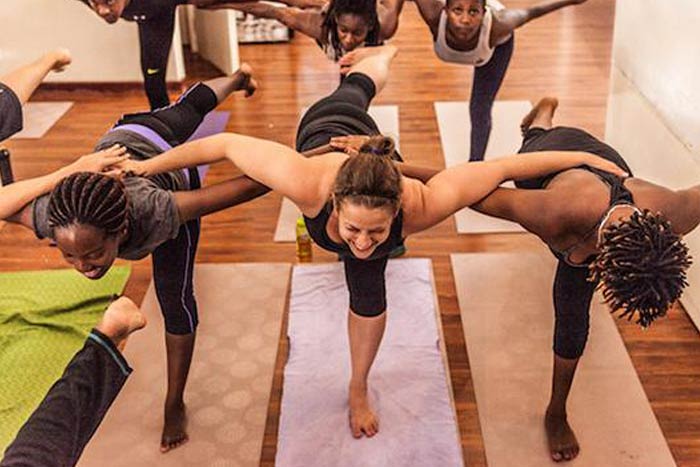Histamine is a known vasodilator; it increases blood flow to injured or infected tissues to help the immune system get at the problem area. And one Japanese study showed that histamine may be released during exercise to help protect the body against exercise-induced fatigue or exhaustion.
Unfortunately, histamine also sends itch signals to the brain, which means an increased histamine production in your body that could induce general feelings of itchiness, which seems to be what you’re experiencing.
A good experiment to see if this is a problem would be to try working out in loose-fitting clothes - to see if you go symptom-free. Another simple way to test this hypothesis is to take an antihistamine before working out to see if the itching stops.
The second scenario
There may be chemicals left from manufacturing of new, unwashed clothing, or from softener residue on the fabric after washing. You could also be reacting to some fabric materials used to make the stretchy exercise clothing, which some people are allergic to. An allergic reaction does not develop all of a sudden. There is often an insidious onset, which means that your body gets sensitive over time by being exposed to the allergen. Wash new clothes before wearing with mild detergent and no fabric softener.
Notice if the skin reacts to wearing only one or a few pairs of pants and compare fibre contents to see if there is a common culprit. You may also find 100-percent cotton fabric more comfortable than ones made with synthetics like polyester, Spandex, or Lycra.



 Contact Us
Contact Us






 Hospitals
Hospitals
 Doctors
Doctors
 Diagnostic
Diagnostic
 Pharmacy
Pharmacy
 Health Tips
Health Tips
 Blog
Blog


















